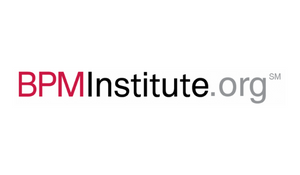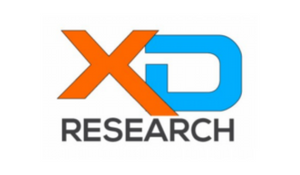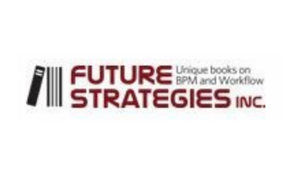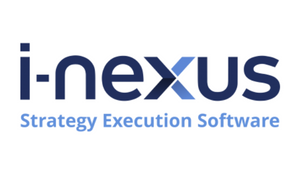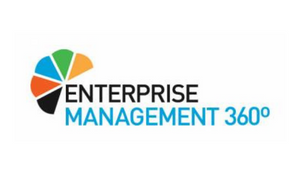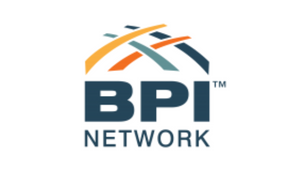

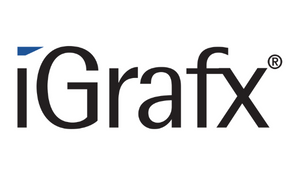
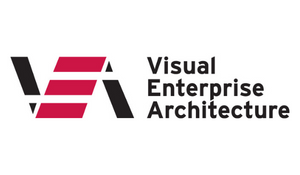
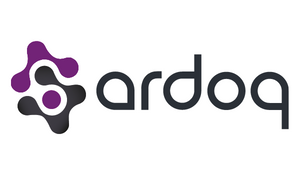
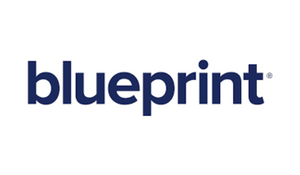
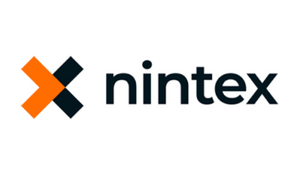
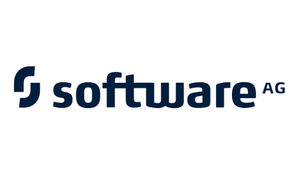


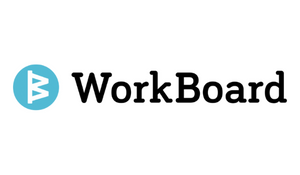
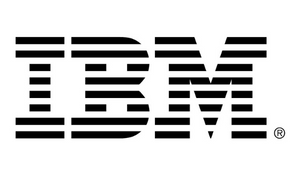


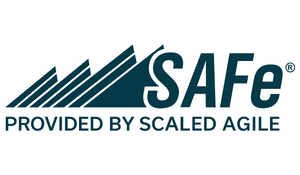



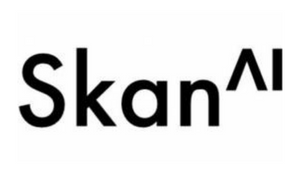

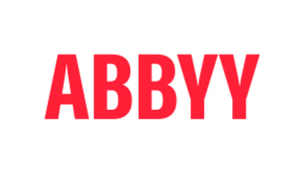

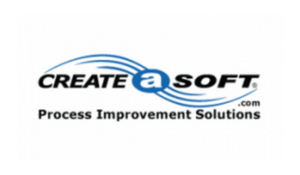

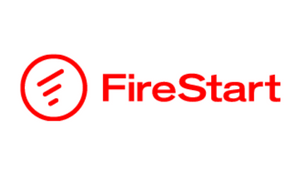

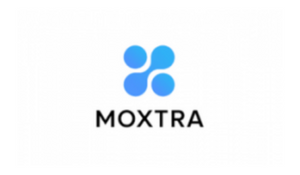
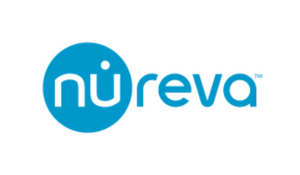
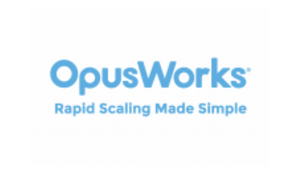
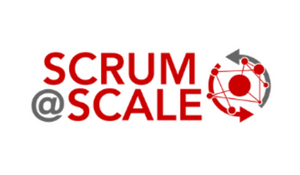
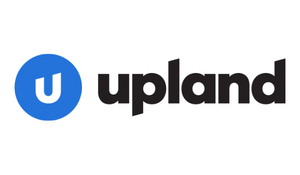

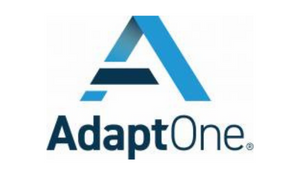
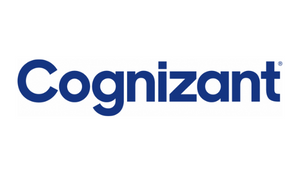
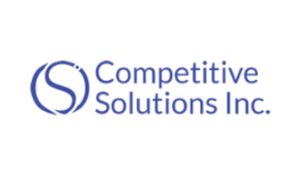
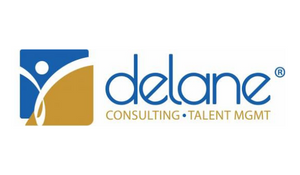

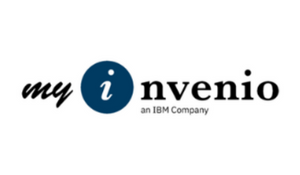
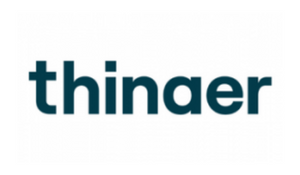
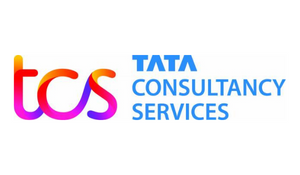
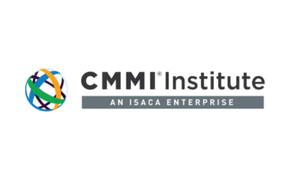
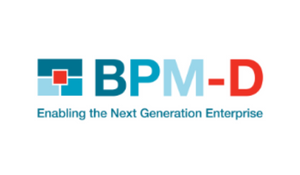

Courtesy of Dell's Bill Wong, below is a transcript of his speaking session on 'Architecting an AI Ecosystem' to Build a Thriving Enterprise that took place at Enterprise Architecture Live Virtual Conference.
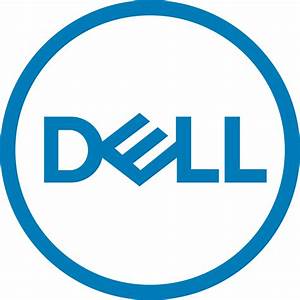

Session Information:
Architecting an AI Ecosystem
This session will include a review of a recent worldwide Digital Transformation survey of 4,300 decision makers from mid to large enterprises. Although 2020 has been a year of characterized by tremendous change, it has also provided clarity for the need of organizations to be more agile, with a scalable and resilient IT infrastructure to manage future disruptions. The survey indicates that the top technology investments over the next one to three years include: security, privacy software, multi-cloud platforms, AI and data analytics and data management tools.
The use of AI and data analytics is expanding across the enterprise. Business leaders are realizing that AI and data analytics are key differentiators to their business and are adopting a data-driven culture to drive greater customer insights. These organizations need a platform that delivers an agile, open ecosystem for data scientists and developers to work efficiently together. An architected approach in building a data platform enables an organization to share data and maximize the benefits of their investments in advanced analytics.
Key Takeaways include:
Session Transcript:
Very excited about our next guest belong, AI, and data analytics leader at Dell. He is going to wrap up our session by looking at creating an ecosystem off for AI in your organization. So, Bill, please go ahead, Claudia, your camera on. And I would like to welcome you. Welcome, Bill, Bill is coming to us from Toronto, Canada to the world. Great to have you with us, Bill. And his current role, Bill, is the AI and data analytics practice leader for they'll work at responsible for Canada.
He's the author of a number of books on data analysis and data management, and the quarterly AI newsletter, former enterprise and cloud architect roles with Bill included work with development at IBM consulting with Oracle.
So, ladies and gentlemen, I'm going to leave you on the capable hands of mister Bill Wong. Thank you, Bill, for sharing your expertise with us.
Thank you, Jose. Thanks for giving me the opportunity to share our best practices with your conference participants.
So, let's see here.
I mentioned before.
Now, in the 33 minutes remaining, I'm going to talk about digital transformation projects, and the biggest and most complex deals that I've had the field work on, we're related with digital transformation.
So we'll give you a quick snapshot there, and then we'll go into AI specifically and share it with you, what we've learned, And with working with our customers, a big thing these days, is looking at multi cloud and how we can take advantage of that.
Yeah, so a little bit about Canada. So forgive me.
I just wanted to kind of put a pluggable What's interesting about Canada in AI?
Back in 20 17, we are the first country in the world to announce a national strategy.
AI is big.
I'm not going to go through all the details here But in 20 18, if you've spent time in AI, you'll know these names.
-2.png?width=350&name=Screenshot%20(28)-2.png) Geoffrey Hinton, often considered the godfather of modern AI, is this work at U of T and two other folks, Yoshio Benji's: Yeah, if you're familiar with, Facebook uses the AI lead researcher there, by the Canada of, where we're really well-known for AI development, that the algorithms, and also we have a number of labs, commercial labs, that have been developed located in Canada.
Geoffrey Hinton, often considered the godfather of modern AI, is this work at U of T and two other folks, Yoshio Benji's: Yeah, if you're familiar with, Facebook uses the AI lead researcher there, by the Canada of, where we're really well-known for AI development, that the algorithms, and also we have a number of labs, commercial labs, that have been developed located in Canada.
At Dell every two years, we do this massive survey worldwide.
Target 4300 decision makers and from mid-level to C level executives across 18 industries.
And so here, if we take a look at the Americas, I think everybody's seen that the pandemic has really accelerated people with their digital transformation projects here.
So, you see less and less people over time as being digital laggards or followers because they need to set this up to actually conduct business.
And if we take a look at, some of the programs are really popular here.
Not surprising.
So cybersecurity is very important and remote working with us, proliferate it throughout the world.
And Canada kind of lines up the same here with the Americas here.
Then lastly, Transforming, Making Experience on Digital Platform, differentiate your offerings.
The top three barriers here that we have found, and if you want, you can go to our Dell site or contact Me on LinkedIn, and we have all the detailed statistics that we've collected here across the world, across all geographies. But data privacy and security remains a top concern.
Budget is a concern, although my colleagues talking to Brian and Jose, often, I do budget as kind of not having the right leadership, the right awareness for certain projects.
And number three, why we're here today is to better understand how to get access and extract value.
And again, part of the survey, we surveyed people asked in the next 1 to 3 years, What kind of technologies do you see yourselves investing more in?
Again, no surprise security .... Data management tools. So this includes analytics.
And then here, we deviate a little bit from the Americas in Canada. Multi cloud's becoming big, but I'm sure that's happening in the US as well.
Should be hopefully no surprise that AI is really thought of in the boardroom, along with data analytics, as the best potential to change the way they do business to differentiate the offerings.
And today, it's also the fastest growing workload in the data center.
Now I've been trained as an EA and Cloud architect.
And one of the first questions I ask, when I Speak to her C level executives to have an enterprise architect, and you, unfortunately, maybe, you're not surprised. Many organizations do not have an enterprise architect.
And I think this role is critical for adopting new things, especially like AI.
 Um, what I've done here, is that many of you are probably familiar with the Gartner Hype cycles, but AI has become so pervasive that they need multiple hype cycles to keep track of just how much influence AI is having.
Um, what I've done here, is that many of you are probably familiar with the Gartner Hype cycles, but AI has become so pervasive that they need multiple hype cycles to keep track of just how much influence AI is having.
So, on the left-hand side, we'll go into detail. A lot of this is technology infrastructure to make BI applications run better, and we're going to go into more detail there.
On the right hand side, you see new forms of AI coming up.
I won't go through that in detail. These are still emerging generative AI.
Where you create content or edit content.
Unfortunately, this is the type of technology you can use to create deep fakes. But again, still kind of evolving these forms of aim.
But you can see that AI is very pervasive in emerging technologies.
one thing I do when I, when I speak to companies, is have cell and architected approach to implement technology, like AI.
Even though it's, it's new, it should have the rigor of other kind of architectures that you're all familiar with.
Given train with toll gaffes, you should recognize most of these steps.
And here's a sample artifact.
And we'll get into more details here that are build jointly with the customer to say, hey, as we adopt AI technology, let's step back four.
We picked technology. What is your kind of architectural principles for adopting technology?
And for most places, they want AI technology, they want it open, they want it to be able to performance scale, They want it somewhat less complex.
They're always going to be complex to some point, but something where you don't need a small army to maintain course, availability, privacy, security, important, data quality. So many of these things, hopefully, should be familiar with you.
So this is an example of that.
I presented to a CTO at a hospital.
And again, I worked with them to find out what are the important technologies they see AI impacting.
And, for this hospital, we have one of the biggest ones are these two, actually, where they wanted to take advantage of all the new IOT or IO, internet of Medical Things, devices in there, to integrate that kind of data.
They're also well known as being a, a training hospitals, so, they're looking into augmented and virtual reality, and we have a number of hospitals, actually in Ontario.
Especially with ..., it's difficult for a lot of folks to get that practice for the operating room. Many have implemented this type of technology.
Um, again, a good practice in developing a strategy, is to find what are the business drivers here, for this hospital.
Not surprising, patient care was number one.
They also mentioned before there are learning hospital, they wanted to foster that learning environment. They also wanted to be a trendsetter and be no research.
All right, so, what do these companies have in common?
No, I can't hear you but I'm gonna guess that most of you will recognize most of these icons here especially this one ordering things out.
But I'll bet you that most folks don't know what this is.
Jose will buy you a free lunch if you know what that icon is.
OK, so that icon actually belongs to a company called Graph Core.
Graph course, a startup, chip manufacturer, and they, they're building chips to optimize deep learning algorithms.
So, in selecting what we call AI accelerators, and this is the chip technology that powers the servers where you run your AI algorithms.
On the far left, you have technology.
The most people are very familiar with, the CPU base serial processing, either Intel or AMD processors.
Next, you've been following nvidia there.
They're the £800 gorilla known for doing hard graphics, parallel processing.
Fortunately, back kind of processing really aligned well with deep learning.
So they've done very well in the past few years and continue to do well.
And actually, I don't really see a credible competitor yet in the GPU space.
It's time FPGAs field programmable gate.
Gate arrays, this is chips that are flexible that you call. You can code at the firmware so that's the advantage here as you go to the right.
They're more optimized, but they kind of lose its flexibility.
But with the FPGA, if you can encode it, the firmware level is quite flexible.
I see these deploy mainly in niche type of environments and manufacturing and retail, not as well as adopted as GPU.
And then finally, a six, so basic processors, application specific integrated chips.
So this is where graph core fits in, and multiple other chip manufacturers. You've heard AWS, say that they're going to start building their own chips here and move away from Intel.
.png?width=600&name=Copy%20of%20Email%20Graphic%20Virtual%20Conferences%20(3).png) And so all the startup capital is going here. There's a plethora of choices here.
And so all the startup capital is going here. There's a plethora of choices here.
And so graph core, um, is Adele.
We've implemented their chips were the first commercial offering of the graph on chip.
So the Dell strategy for AI is, and you don't know who's going to win. And so we're placing our bets on all of them. So that cover offerings that cover the whole gamut.
We'll see what the market size.
All right, so, some real-world examples and things that we're seeing here, uh, If you come from the medical community or health care, or been following them developments, and advancements in coburg research, you'll know that in order to create a vaccine, it's very useful to understand the three-dimensional structure of the virus.
And that's difficult to do with microscopes. I mean, that's how they do it.
But how they did it for the kogod like, and they actually use software that came out.
Person The Toronto startups is they use AI to predict Biba model, or the three-dimensional structure of the buyers.
And as they're doing that, as they're doing that, they take their prediction of the model, and they run protein simulations to see if potential vaccines will have an effect on the molecule, this convergence of AI and kind of high performance computing.
It's something that is relatively new.
We're seeing it in healthcare.
We're seeing in financial services L, people are going to places like the Lawrence Livermore National Lab to try to get access to the huge amounts of compute power required, two, to run both AI and HPC.
And so this market at the very high end is growing, where you have a pipeline that combines both deep learning and other types of analytics, And just put a quick plug, we do recognize that.
And, and you don't see the shift from the hyper scale or the public cloud vendors yet.
But today, you can get a platform to do traditional HPC.
And if you're familiar with those tools, like where cluster, manager, and learn, but also, this, you can provision an environment on the same platform to do type, torch, TensorFlow, Kubernetes, et cetera.
This is a unique platform.
I haven't seen another platform in industry yet that can do that, But I'm sure look.
A little word about developing AI applications. A lot of folks have developed tools to make people more productive, is important part of the ecosystem.
We'll just say that the on prem solutions on the left, it's like the Wild West, if you follow this Magic Quadrant.
Vendors have been changing positions quite radically.
So there is kind of like no best tool, though.
Regards to the leadership budget are the ones that have endured the past and the past three years.
On the right hand side are the public cloud. Vendors are not to be outdone. They provide these types of services with their offerings as well.
But if I was to compare the two, I would say that the on prem have a bit of an edge. Today.
It's not to say that these folks can't catch up, but most of the, these services are probably some of the most underutilized services from Public cloud vendors.
Most people go there for platform as a service, or infrastructure service, but not necessarily machine learning as a service. Yeah.
A best practice in developing AI applications is create a data platform to support your analytics at a very high level.
Most logical architectures will consist of a landing zone where you after that, a place where you can bring in data, be it near real-time or batch loads.
And then the process of transforming that data, clean the data, collecting, consolidating the data takes place.
And then optimize data store, so that you get really fast response times, too, the different users or personas that are out there, all sitting on an optimized infrastructure, having data governance here.
Now, I'm currently involved in a POC at, at a research center, and what they want to do is build an AI sandbox.
And they find, today, they have a number, have 40 AI projects going on going on right now.
Each researcher, as or favorite development tools, they search and get their own data.
And then they beg, borrow, and steal for infrastructure, and that's kind of how a lot of organizations are doing AI today.
Because a lot of the tools to govern this is still relatively new.
What I'm proposing to them is to move toward a model type environment, and we're going to focus on these.
To hear data as a service and Platform as a service. So there are a number of tools out there, and I've listed.
A few, is where that with a touch of a button, you can deploy your servers, your storage, your favorite software tools, and make it multi tenant, so your work doesn't interfere with somebody else's work.
So that's as a platform, as a service.
Then, what is emerging. And if you're in this field, you've probably heard of the number of products, due, date of service.
And this is where a lot of researchers lose a lot of time, is, can I share this data, is a state of trust.
And so there are other players out there, Claybrook comes to mind.
We acquired a company called Unify and for a product called Data Catalog and Crep.
But what these products do is, once you load on the data, you are presented a catalog of what data is available to the researcher, and it doesn't get on the catalog until it's been cleaned, embedded.
Perhaps, you know, the doctors, if necessary.
So this kind of technology, US, great productivity tool, or for the researcher. And I believe this would become more popular as time goes.
This is a bit of an eye chart, but again, the ecosystem is, we touched on some of it on hardware, servers, IOT devices, software.
There's lots of software stacks to consider frameworks to do deep learning, orchestration software. Typically, Kubernetes is the most popular or tools to do that.
.png?width=742&name=Screenshot%20(4).png) I showed the last screen, a deployment model, via to on prem.
I showed the last screen, a deployment model, via to on prem.
Most people want a cloud deployment model, but can be a hybrid on prem or or in the public cloud.
OK, so, when I've talked to people implementing AI, and this is true for this one, financial services firm are taught to really have a huge effort right now to put everything in the cloud.
So, they're doing that, and a year later, they said, we're spending more money now on IT, uh, with having everything in the cloud. Then we just store.
And so they, they, they did a stop and say, OK, what really makes sense?
And they decided that, OK, there are, some projects are great for the cloud, But others, characteristics for the business, do privacy, size of data, that it might not make sense to be the optimal platform.
So, many customers I've worked with are stepping back and saying, OK, let's, let's take a business approach rather than technology jumped in and everything must be allowed.
Now, it should be no surprise to most folks here.
The top three vendors here, very sort of their offerings, AWS and Azure and Google.
What might be a surprise to you surprise to me too slowly is v.m-ware Dells offerings.
and just on AWS, you see really greater adoption from customers out there.
And now, also, with our hybrid offerings.
So, I would predict in 20 21, when you include revenue from what we're doing with Google, what's Microsoft, that will the, in the fourth place.
Now, this, this slide, we could spend the entire presentation on.
And so, I think we have some time, so I'm going to talk a little bit about it.
I don't mean this to be a complete, um, summary of all the technologies of all the services. The ones that I'm focusing here on are things associate more with analytics and AI.
If you're going to do this properly, of course, You're gonna have to talk about security.
But I'm going to assume that you're going to worry about security before you think about these kinds of things.
So.
So, what I've tried to do is identify some of the key services people look to in having a platform provided to them.
From AWS Azure, Google, I've been position, You want to comment on prem and partners, and we have a Dell to provide the same kind of service, and of course, to keep everybody honest, listed to open source options as well.
Now, just because they, I've been able to find an offering to fill in the blank doesn't mean that these products are all the same.
You do have to do research. These products are very different.
Some are very different capability, and adoption. There's a wide swing on which one of these are low.
But I'll give you a hint.
If you see a product, which name you don't recognize, and it's probably the fourth, third, or fourth generation of that product, I keep changing the name.
That probably product probably has had challenges in finding adoption, for one reason.
So, most of the data is still out there in structured, for SQL. That's important. Is data warehouse, typically, these are scale out. Sure, nothing type of databases out there.
And again, each one has has their own here.
No SQL databases are becoming very popular.
I'm actually seeing Hadoop.
While popular in the day, it's finding, or companies are finding other alternatives to Hadoop. And one of them is no SQL databases. So these are databases optimized that are non relational.
I see a big uptick for graph databases.
And if you're not familiar with graph financial services, this is where they uncover.
Potential fraud. When people hide money to uncover all those relationships, they discover that using graph database technology.
Now, everybody does have lots of forums, analytic offerings here.
Governance, or the data catalog.
So as I mentioned before, a few slides ago, this is a really important technology to provide data as a service.
And the capabilities of these vendors vary widely.
So it's worth your while to kind of step back and do an assessment before you adopt any of these technologies.
Um, OK, so compute entertainers, best practice to kinda, and now ops use container Kubernetes based technology.
Serverless function as a service.
What I want to talk about here is multi cloud.
So I'll just put a short plug for Dell that may have heard of an apex project.
So this will be Dells, orchestration tool that will integrate with AWS, Azure, and Google Cloud, and you can monitor that all from a single pane of glass Now, to Google's credit.
-2.png?width=350&name=Screenshot%20(28)-2.png) And anthos, this allows you to have the Google Cloud experience on prem.
And anthos, this allows you to have the Google Cloud experience on prem.
And Anthos has been extended to also integrate with AWS, And they do have kind of a earlier version for Azure available Azure and AWS, At this time, their multi cloud offerings are only to provide the cloud experience on prem.
That is the same as the public experience for the cloud experience.
So, you work with AWS and all the AWS on prem, Same with Azure, will they change, Time will tell.
But strategy here, at least with Google and Dell, is to try to recognize that people will need access to all different types of clouds, yet, public or private.
So, few more slides here.
Um, in working with University West, they needed help in trying to understand how their algorithms could best best run.
And we have silly Austin, and it's available as a value add service, no charge, or the right kind of situation.
We have a cluster there of massive amount of Intel processors, another 1 or 2 AMD, and one more than 100 nodes of nvidia GPUs.
And so I use this was to help out a number of institutions better understand how best to optimize the running of their algorithms, and to give foresight into what kind of configurations of hardware and software they would need going forward.
We also have other labs around the world focused on safety and security solutions. And this is owned by our IOT division.
And what this does is it works with third party vendors out there.
So case in point one that was announced last year is a thermal vision detection platform. You can use thermal imaging cameras and saw them, and mobile versions test it out with nvidia GPUs.
And this does all the integration testing there validate these offerings, because there's so many moving parts to make these things work.
So it's a great value add service if you're to building this.
So this is my last slide. So, we might have a little more time for questions here, I know, and rather, quickly here.
But the best practices here, and, hopefully, if you have background in analytics, you'll know that the journey in providing this is unique for every type of digital transformation initiative.
But number one, I think, is really to have the culture that you want to be data centric. Data driven.
I was speaking to an executive, about $11 billion firm, and they just simply didn't believe in Analytics construction type.
Industry day, They, they said it's OK for predicting, perhaps, when things will break down. They get the value there.
We're forecasting. Everything was more kind of.
Gut feel.
So, OK, well, I can't help you.
I can provide you some examples of other people have benefited, but the culture just simply wasn't there.
And believe it or not, most most quite a few firms or stolen.
And for AI, despite it being new, They could really use the guidance of an Enterprise Architect.
So, to take a look at it, holistically to take a look at, from an application data technology perspective.
You want to go forward and create a shared infrastructure to have this confidence.
Because in many places, even banks, it is like the wild west. I was speaking to one day.
The IT team was so frustrated that they would have one line of business, come up to them and say, yeah, I need you to help me build this infrastructure.
And by the way, I can do that through 50,000 with the rest of it. And somebody else would come up and say, can you give me this infrastructure? And by the way, this will cost you five, no.
So the IT folks are really getting frustrated and they're really looking for, for help.
And I spend a lot of time, actually, not just with data scientists, chief data officers, but kind of educate the IT staff to better understand how best to go forward in architected fashion.
Right.
Just just just provisioning hardware and software that they ask for.
So I mentioned before, for AI accelerators that are, our strategy is really took place fence and all types of technology. FPGAs, via ... processors like graph core.
Of course, we're the top partner nvidia also of Intel AMD.
So you have your choice there, and our strategy is also to work and build an ecosystem with all of the leading partners out there.
And when I say build that ecosystem, we take that complexity out by testing them, configuring them.
So many of the, even the open source offerings, you're going to see, don't come up with these innovative, ready type offerings, where they include open source technology.
.png?width=600&name=Copy%20of%20Email%20Graphic%20Virtual%20Conferences%20(3).png) A good guiding principle, when you build these things out, you want an infrastructure that can scale.
A good guiding principle, when you build these things out, you want an infrastructure that can scale.
And, again, you want to infrastructure to, that helps reduce the complexity, And, again, be an open source.
And we're going to make these cost effective.
So, that's it in a nutshell.
If you go up to the presentation or my LinkedIn, post this up, I have links here if you're interested in any of the technology I spoke about.
Sure, right.
Yes, active links. and it's impressive results.
OK, Jose, that's it, that's my presentation.
I'll say fantastic all along, and I realized I had myself muted, so you couldn't hear me, so I apologize for that.
And, great presentation, Bill, Well, what a great insights and the depth of what you've covered was. Excellent. So if you could please now, go ahead and stop sharing your presentation, so that you and I can be on camera a little bit bigger for the audience.
And I am love very much looking forward to the questions from the audience, and I'm going to relate that to, to build real time.
But the deal, I'll start off with one of the common some of the comments that happened during your presentation is that, we have quite a quite A different across industry representation and the different levels of expertise of AI in the audience. And from technical experts to business leaders.
And if you could look back in the last 12 months, there's so much going on in the field of AI.
If you look back the last 12 months, of course, we have been like for a pandemic during that time. But, I think, despite that, the development of AI continues, regardless of or not. It may be even accelerated during the pandemic. What, what have you seen in the last 12 months that you think is most meaningful in terms either development or maybe a solidification of old things are being applicable now for value creation? What comes to your mind? That has been meaningful in the last 12 months?
Well, for me, I've had the opportunity to work with all industries adopting AI.
But because of the pandemic, I think health care has been the industry that has been accelerated, unfortunately because of the pandemic, but it's certainly been accelerated.
Typically, drug discovery development takes anywhere from 10 to 15 years is the average and as everybody knows, since pandemic was identified, we hadn't vaccines like in a year.
It is just unheard of.
And to get there, AI played a key role in helping identify the molecule and test out the vaccine, and I think we're all going to benefit from that.
So, probably going to develop a presentation chest on a drug discovery because it was so impactful, So, I think that's the number one industry going forward.
Now, people are looking to AI to help assist with remote care, and these are technologies that will impact you and I on a personal level.
So, of course, there's AI benefits and all others and histories, productivity gains, et cetera, making life easier.
But, for quality of life, this, this will impact us.
That's terrific.
Yeah, you know, even if for those who may be watching for a certain distance, you know, it wasn't long ago that we're having AI about talking about AI unfolding of molecules and things like that. And then some AI applications that have been very successful in a lot of those types of examples.
And we had the essay, that presentation, front, sappy, Artificial Intelligence, as well, on the business applications of AI that are, that are growing, and really the last 12 months, maybe they sped up as people have focused more uncertain digital technologies, and understood the value of AI.
What do you see as still the major current challenges for organizations to adopt AI effectively?
So, I think still, it's, it's really having a data centric culture.
I get a lot of couples wanting to do AI, and then when I talk to them, I find that there are traditional silo based companies.
They have an ERP system, They have a supply chain system, but they don't share data internal and say there's no magic button.
That's a lot of hard work that you need to prepare before you can really produce your own AI.
So those firms, AI adoption, will be coming by buying an application that has AI embedded.
They're not going to be part of the group center innovating and leading the charge, which by a lot of folks do want to do that.
The price to pay is, is you have to be equal to share data treated as a corporate asset.
That culture really has to be in place.
And then of course, having Enterprise Architect, the firms that have that, really accelerate their adoption.
The hostel I'm working with, first question I asked, the chief technology officer was, after he told me, what he wanted to do, I said, you have an enterprise architect, he said, no, I said, hire.
Because you need that person who has a holistic view, and they do, OK.
That, that's a great segue for the topic of the, of course, of this conference, on the, The role of enterprise architects, on, on on leading AI for organizations. How do you see that?
What is the role that enterprise architects play for successful implementation of AI systems?
So, like with other projects, the Enterprise Architect should be that person you've come to, to have picture of the benefits from a technology perspective, but a business perspective, as well. To align the technology, there are too many AI.
.png?width=742&name=Screenshot%20(4).png) Folks are, we're really excited about the technology, you just jumped in and let's play with all these great tools.
Folks are, we're really excited about the technology, you just jumped in and let's play with all these great tools.
They forget that they need to sell this up the line to senior management, uh, and nobody's better equipped to do that than the Enterprise Architect.
Alright, let's, let's have a little fun with this, some of the commentary that has emerged here has to do with the, with the development of AI, and that may be a potential level, you know, reaching the singularity, if you will. Yeah, we, Bill, when it comes to cognitive, cognitive capabilities of AI, the engines, or whatever you call the systems that are being developed today. I know you'll keep your finger on the pulse of a lot of that stuff. For our research and development perspective, how is AI progressing is progressing along the line that we expect towards a certain singularity?
You know, some people say, a few decades from now, some, some will say, in the next 5 to 10 years, Where do you put the developments to know how much of it is factual? How much of it is just hype?
Yeah, it's, I, I used to be pre pandemic days, I would do an AI Roadshow across the country.
And there's always somebody in the audience who goes, how far we've away from Skynet is that it's not going to happen. And I think we're still far away. Although.
I think 10 years is very optimistic but you never know.
You never know, because when in 20 16, when they, when deep mind, developed a system that can beat the basketball player, that was at least 10 years had scheduled. Most people did nothing.
And the research that I did that, by the way, based on reinforcement learning that came out of University of Alberta.
So another Canadian contribution to that.
So 99% of the AI apps are very what we call we very singular and purpose, to do generalize AI, still always way quantum computing help it.
I'm not convinced yet. So, I'll but I am an optimist. I think 10 years.
We're going to continue to see some disruptive technologies.
It's not there today, the building blocks of soil aren't there yet.
Yeah, for sure. As you mentioned, going from domain specific AI to generalize AI, is, is a lot more than just a normal progression. That's maybe it's not even on the same line. It's a paradigm shift, right? And the baleful knows, we don't know what we don't know. And, you know, human ingenuity is it's always fascinating.
What's getting you excited about AI right now?
I mean, you have covered such great depth of content here, and the, and the breadth of this content. There's so many possibilities that you have just share with our audience, you know, be selfish. Now they'll tell me about your pet project, when you're working on AI, and you are working with organizations right now, on all these different areas. What are some of the things that you get excited about, because you either see a lot of value, or it's just really a paradigm shift of some sort? What gets you excited about the AI field this day?
So, my pet projects, things I, I'm in dear to, where I read research articles, is in the healthcare industry.
And I typically will post a quarterly newsletter that I write.
I give them certain Dell customers, but I get posted on my LinkedIn, as well.
But I spent over half of it talking about how AI is changing the way we deliver health care.
And I think I'm interested in that because I didn't write a book many moons ago, proteomic, Genomic Research, analytics.
There's, there's so much opportunity there for advancement to improve people's quality of lives and to reduce costs.
But, the bureaucracy out there, in any country, it doesn't matter which country.
Health care is easy, difficult, and challenging service to deliver well.
So I'm hopeful.
I'm always interested in understanding how can we improve people's lives?
That is fantastic. That's that's great. You're here We have one final question here that we have time for. And this one is coming from ... Mathias in Brazil. And ... is asking, is asking bill, you know, what are the? what is the recommended first steps for an organization to adopt AI? Like, if we don't have it, then we're gonna adopt AI in our information ecosystem, you know there are budgetary constraints. So we have to start small to then scale. How can we start small scale with AI? Is there a way for us to do that?
I think the best way, and thanks for the question, is really a small group of people, just do just enough architecture, is you really need to define the strategy.
AI's moved out there, sure it's a new shiny thing, but why would we bring AI in here?
What is the condition we have taking AI or why should the rest of the cockney care about it? Where are we going to impact?
Will this reduce costs or this improve the customer experience?
Will this make us safer and how we deliver services?
They said, oh, this compliance, those, actually, those three things are common in most industries, and quite often, the reason why people were first adopted, rather than create something brand new, that that's great, and some people can do that and create startups, but it's usually traditional business drivers that that are the key.
And keep a small group small budget scope.
it find some interesting use cases, go to the line of business and find an executive bakker, right? This will not be driven through IT.
They don't have the clout politically.
And again, it's still kind of own technology too.
Terrific, insight, and advice, Bill, Thank you so much for taking the time to share your expertise and the vast, practical knowledge with all of us. And, on behalf of over 2000, registered, participants were very fortunate to have you and the very grateful for your generosity in sharing your expertise with us.
My pleasure, thanks for inviting me again, and thanks everybody. Contact me on LinkedIn if you have any questions.
Thank you, Bill.
Ladies and gentlemen, that was Bill Long, AI and data Analytics leader or Dell and the and and Bill makes a great closing for our three day conference on Enterprise architecture. I hope you gained some great insights from the many presentations we had and the exchanges we had, I certainly welcome everybody's participation and engagement throughout this sessions. As you remember, we will be send you a recording of all of the sessions. Starting next week, you should receive an e-mail with all materials and links and password to access the recording of the sessions.
Don't forget.
Next week, we started another. Great three day conference focuses on robotics, process automation, and intelligent automation. I'm going to be making boasts about that on LinkedIn. Of course, you can go and register for RPA and I a live, through the many links that we sent you in the chat during this conference. And we very much look forward to see everybody at the RPA and Intelligent Automation Live next week. So saying goodbye now from San Antonio, Texas. It's been a pleasure to be with you for this three days, and I look forward to seeing you next week.
Bye-bye.

 Bill Wong,
Bill Wong,
AI and Data Analytics Leader,
Dell.
I have had the opportunity to work with customers around the world implementing strategic and analytical-based solutions leveraging data as a corporate asset. Experience with data-centric and cloud technologies from my tenure at IBM, Microsoft, Oracle, and Dell. Previous roles have included cloud and enterprise architect, consultant, product and performance benchmarking manager.
Currently, I lead AI and Data Analytics initiatives at Dell Technologies and spend most of my time supporting customers from the financial services, retail, public sector, healthcare, and higher education industries. Customer AI projects have included: jointly developing the customer’s AI strategy, assessing AI accelerators, developing AI and data best practices, benchmarking deep learning algorithms, and jointly developing the technology roadmap with C-level executives, data scientists, and/or enterprise architects.
I have authored a number of articles, whitepapers, books on strategic data-technologies, and a currently the author and editor for a quarterly AI newsletter. Courses taught have included database management systems, systems analysis and design, accounting information systems, and strategic IT planning.

View our schedule of industry leading free to attend virtual conferences. Each a premier gathering of industry thought leaders and experts sharing key solutions to current challenges.
View Schedule of EventsWelcome to BTOES Insights, the content portal for Business Transformation & Operational Excellence opinions, reports & news.
-------------------------------------------------------
Search for anything
Insights from the most progressive thought leaders delivered to your inbox.
Insights from the world's foremost thought leaders delivered to your inbox.
Being a hero is all about creating value for others. Please invite up to 5 people in your network to attend this premier virtual conference, and they will receive an invitation to attend.
If it’s easier for you, please enter your email address below, and click the button, and we will send you the invitation email that you can forward to relevant people in your network.
View our schedule of industry leading free to attend virtual conferences. Each a premier gathering of industry thought leaders and experts sharing key solutions to current challenges.
View Schedule of EventsWatch On-Demand Recording - Access all sessions from progressive thought leaders free of charge from our industry leading virtual conferences.
Watch On-Demand Recordings For FreeDelivered by the industry's most progressive thought leaders from the world's top brands. Start learning today!
View All Courses NowThe premier Business Transformation & Operational Excellence Conference. Watch sessions on-demand for free. Use code: BFH1120
Watch On-DemandInsights from the most progressive thought leaders delivered to your inbox.
Insights from the world's foremost thought leaders delivered to your inbox.
Being a hero is all about creating value for others. Please invite up to 5 people in your network to also access our newsletter. They will receive an invitation and an option to subscribe.
If it’s easier for you, please enter your email address below, and click the button, and we will send you the invitation email that you can forward to relevant people in your network.
Courtesy of Nintex Pty's Paul Hsu, below is a transcript of his speaking session on 'Improve employee productivity during and post-COVID by ...
Read this article about HP, Best Achievement in Operational Excellence to deliver Digital Transformation, selected by the independent judging panel, ...
Read this article about BMO Financial Group, one of our finalists, in the category Best Achievement in Operational Excellence to deliver Digital ...
Read this article about Cisco, one of our finalists, in the category Best Achievement of Operational Excellence in Internet, Education, Media & ...


